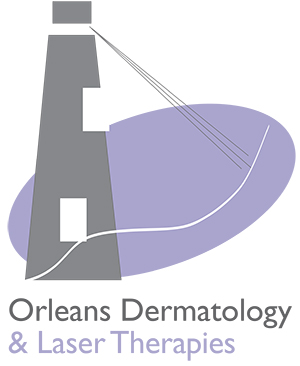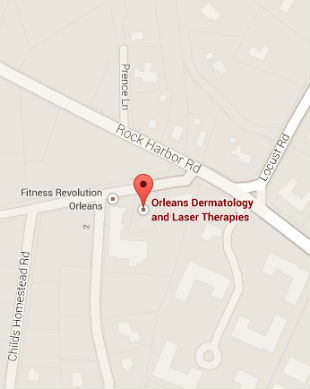Skin Cancers and Atypical Moles
There are numerous types of skin cancer, which is why most adults should have a complete skin exam. We recommend that you arrive for your visit without make-up, hair spray, or nail polish obscuring our ability to fully examine your hair, scalp, skin, and nails.
The most common non-melanoma skin cancers are Basal Cell Carcinoma & Squamous Cell Carcinoma, which typically arise in tissue that has been damaged by the sun, viruses, burns, or other trauma. Pre-cancerous lesions called Actinic Keratoses often demonstrate the beginning of a non-melanoma skin cancer.
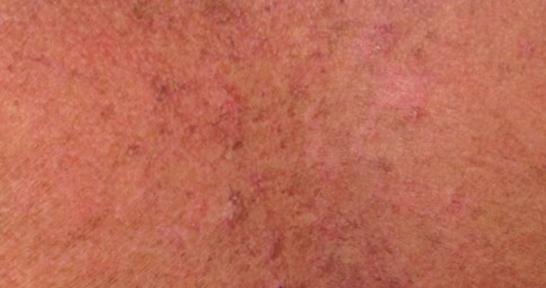
This patient’s skin is badly sun damaged and has numerous Actinic Keratoses. For this condition we commonly recommend a field therapy to prevent the development of skin cancers.
The National Cancer Institute (2009) reports that about half of all Americans who live to age 65 years will have UV-caused non-melanoma skin cancer at least once.
The examples below are of the most common type of skin cancer, Basal Cell Carcinoma. It can cause significant local destruction and may require Mohs surgery, unless detected and treated early.

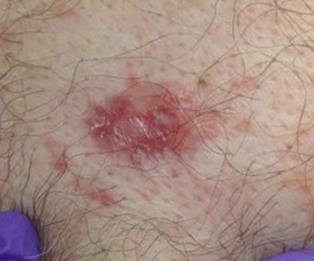
Mohs Surgery for Basal Cell Carcinoma
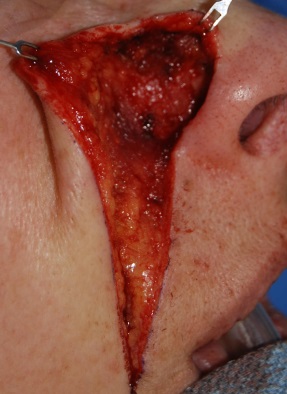
Squamous cell carcinoma deaths are estimated to be about 2,500 annually in the United States (Skin Cancer Foundation, 2009).
These photos below depict Squamous Cell Carcinoma, which we detected in different stages of growth. Patients too often first present with advanced disease. Unless removed completely, Squamous Cell Carcinoma is capable of metastasis.
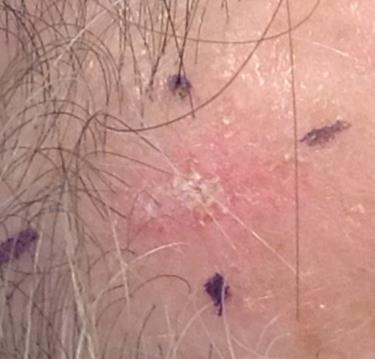
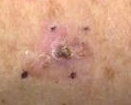
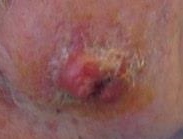
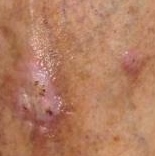
Less common, though more frequently life threatening are Melanoma Skin Cancers. These may sometimes arise from Atypical Moles.
The American Cancer Society estimates there will be 68,720 new cases of melanoma and 8,650 melanoma-related deaths this year in the United States (American Cancer Society, 2009). That number has not decreased since 2009. Leukemia is the only type of cancer that causes more years of lost life than melanoma. It is the fact that the loss of life is substantially preventable through early detection and risk reduction that draws such attention to this topic.
All of the lesions below were detected and evaluated early enough, with the assistance of dermoscopy, to save our patients' lives.
Severely Atypical Mole
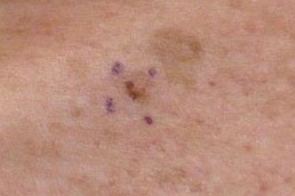
Lentigo Maligna type Melanoma
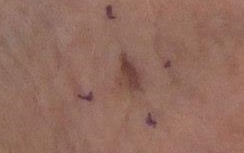
Melanoma


